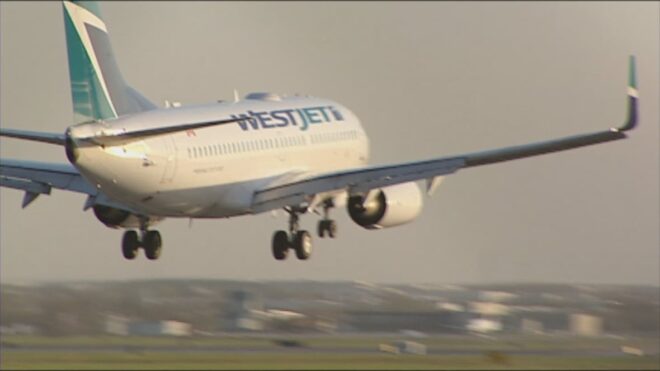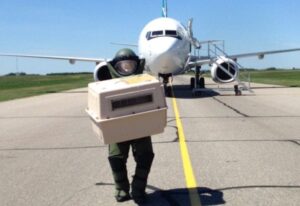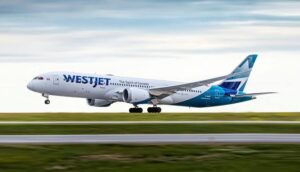
It’s been a frustrating week for WestJet and many of its passengers.
In recent days, five of the Calgary-based airline’s planes were targeted by hoax threats, the latest on Thursday night on a flight from Las Vegas to Victoria. No explosives were found on any of the aircraft.
While the immediate operational costs to WestJet (and local law enforcement) are considerable, the unsettling spate of diversions and emergency evacuations is unlikely to have lasting consequences for the airline’s lauded brand, analysts say — assuming the threats stop soon.

The airline is one of Canada’s top-ranked brands and has amassed a loyal following rarely seen in the aviation world. But some marketing experts say that a persistent “global paranoia” surrounding air disasters could cause problems for even a company as popular as WestJet.
“It’s unfortunate for WestJet , but most passengers realize that in situations like this, the airline is a victim too,” says Mike Boyd, president of the Colorado-based aviation consulting firm The Boyd Group.
“There’s just not much WestJet can do about it, other than follow the proper safety protocols. They can’t stop someone from calling in and making threats, even if it’s empty threats.”
Certainly the added costs of diversions are an ugly proposition for any airline. According the International Air Transport Association, a global airline trade group, diversions ignite a “cascade” of operational costs that can run from $15,000 US for domestic flights to more than $100,000 US for large planes flying internationally.
WestJet flies an average of 420 flights every day, so five diversions are, from a cost perspective, fairly negligible. Boyd points out that a “nasty storm over Calgary” could end up costing an airline like WestJet more money than phoney threats aimed at specific flights.

The more troubling question for WestJet’s future is how the airline’s meticulously manicured brand might be affected, and marketing and communications experts are seemingly split on the answer.
‘Trust capital’
WestJet, more than any other Canadian airline in an industry driven mainly by price competitiveness, has worked hard to cultivate “trust capital” with its customers, says Alexandre Sévigny, an associate professor of communications at McMaster University.
Sevigny points to WestJet’s lauded Christmas advertising campaigns and strong social media presence, which he says generates good will among Canadians and “more importantly generated trust with their brand.”
“Now they have that trust capital in the bank when customers are asked to put their faith in WestJet as a company. It pays off in spades in situations like this.”
There’s no question that the company has largely managed to develop a positive public image. Last year, Canadian Business magazine ranked WestJet as third among the country’s “top 25 brands.”
Boyd even goes as far as to call some die-hard WestJet customers “groupies,” adding that the fact that Canadians don’t have a “laundry list of airlines” to fly domestically only strengthens the airline’s appeal.
A ‘global paranoia’
WestJet, however, is still an airline, and airlines occupy an exceptional space in the minds of consumers because the stakes are so high.